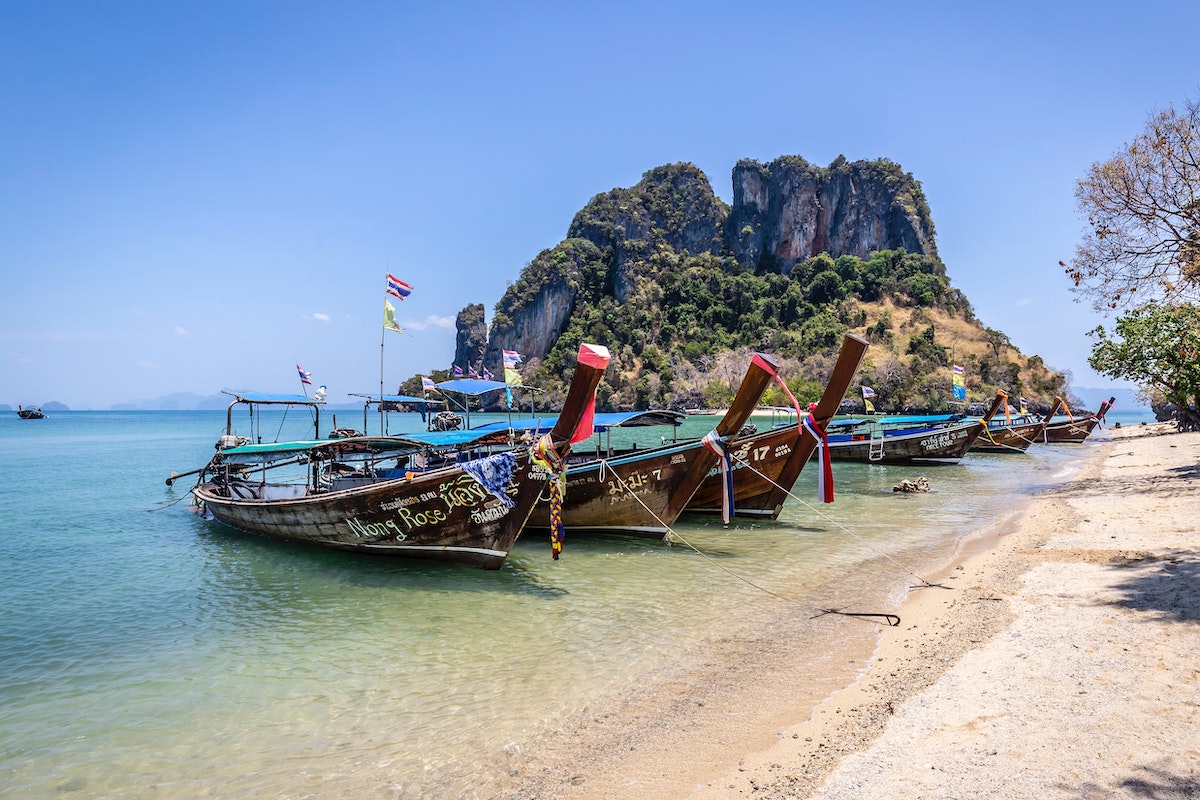By: Nahla ElKazak / Sarah Stone
Skip to...
Looking for a fantastic place to live and work as a digital nomad? Consider Thailand—a country known for its sandy beaches, super fun cities and nightlife, incredible food, wonderful people, and relatively affordable cost of living for remote workers.
Thailand Digital Nomad Visa / Long Term Resident Visa
While Thailand has always been a paradise for digital nomads, the country has recently launched a Long Term Resident Visa aimed specifically for this demographic of travelers. But there are some restrictions.
In September 2022, Thailand announced a 10-year digital nomad / long term resident visa aimed at attracting highly-skilled foreigners who want to work remotely and live in the country. A bit different from the Thai SMART Visa and with much longer stay than a standard Tourist Visa, the Digital Nomad Visa, or Long Term Resident Visa, exists to bring in remote workers of a certain skill type and income level.
A few benefits of this long-term digital nomad visa include:
- Validity for 10 years (five years at initial application with the option to extend for another five years)
- 90-day report extended to one-year report
- Multiple reentry permits
- Personal tax rate of 17%, compared to 35% for other foreign residents
- Tax emption for overseas income
- Ability to bring your spouse and dependents
Qualifications for the Thailand Digital Nomad Visa / Long Term Resident Visa
There are different restrictions for the Long Term Resident Visa, so we’ll break down the basics.
To qualify for a wealth-based visa, you must:
- Have an annual income of at least $80,000 for the past two years
- Have at least 1 million dollars in assets
- Invest at least $500,000 in Thailand
- Have health insurance coverage (which can include Social Security coverage) for at least $500,000, or a deposit of at least $100,000
If you’re retired and would like to live long-term in Thailand, this is a great option—to qualify, you’ll need:
- Have an annual income of at least $80,000 for the past two years when you apply
- If you aren’t employed currently or if you earn less than the above, then you’ll need to at least invest $250,000 in Thailand government bonds, investment, or property
- Have health insurance coverage (which can include Social Security coverage) for at least $500,000, or a deposit of at least $100,000
If you’re a digital nomad who’s currently employed with a company not based in Thailand, you’ll need:
- An annual income of at least $80,000 for the past two years (though if you earn less than that, but more than $40,000 per year in the past two years, you’ll need a master’s degree or have Series A funding in a company where you own intellectual property)
- To work with a foreign company that either is publicly traded or that’s a private entity with at least $150 million combined revenue in the past three years
- At least five years’ relevant experience in your field, which can be retroactively applied to the past 10 years (for example, it’s ok if you’ve had a work gap over the past 10 years as long as you have a combined five years’ experience in your area during that time)
- Have health insurance coverage (which can include Social Security coverage) for at least $500,000, or a deposit of at least $100,000
A little different from the more straightforward digital nomad on foreign employment, there’s another option where you can apply as a professional or expert in a specific industry, or work for an institute of higher education or research group within Thailand, or even be employed by the Thai government. In this case, you’ll need:
- If you’re not working for a Thailand government agency—annual income of at least $80,000 for the past two years (though if you earn less than that, but more than $40,000 per year in the past two years, you’ll need a master’s degree in a STEM field of special expertise related to your job)
- At least five years’ experience in your industry, unless you have a PhD within your field
- Have health insurance coverage (which can include Social Security coverage) for at least $500,000, or a deposit of at least $100,000
Get updates about the digital nomad visa here, and see some more details about the application process here.
Thailand COVID Travel Requirements
As of October 1, 2022, Thailand has lifted its COVID travel restrictions. You don’t need to show proof of vaccination or a negative test to enter, and you don’t have to stay in the sandbox. Of course we recommend exercising reasonable caution during travel to any destination and being respectful of your fellow humans.
Other Thailand Visa Options
- Comprehensive Guide to Thailand Tourist & Resident Visas: Digital Nomads, Semi-Retired, Investors & More
- Thailand Tourist Visa: How to Apply and How to Extend Your Stay
- Thailand SMART Visa: Requirements & How to Apply
- Thailand Elite Visa: Cost, Requirements & Benefits
- Thailand Retirement Visa: Requirements & How to Apply
- Thailand Permanent Residency: Qualifications & How to Apply
Featured image via Unsplash.

